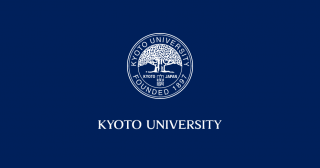As part of the Short-Term Student Exchange -- Nippon Discovery (SEND) Program, 10 Kyoto University students took part in the 2015 Summer School program hosted by the Vietnam Academy of Social Sciences (VASS) and Vietnam National University (VNU), Hanoi. During their two-week visit, participants attended classes provided by both universities to study the Vietnamese language, culture, history and society. They also took part in Japanese language classes there, and made a joint presentation on Japanese language and culture in a reciprocal learning program involving students from the two countries. In addition, they made field trips to Trang An Scenic Landscape Complex and the ancient village of Duong Lam to enhance their understanding of Vietnamese culture through on-site training.
Throughout the program, participants were not only able to deepen their understanding of Vietnamese culture but also had valuable opportunities to revisit and rediscover the language skills and cultural knowledge that they had gained. The program also enabled Japanese and Vietnamese students of the same generation to get together, share experiences, engage in meaningful discussion and thereby strengthen ties toward future bridge-building between the two nations. The students are expected to continue developing their experience and understanding of cultures and to develop relationships of mutual trust with counterpart students.
Report by a participating student
Sachiko Imamura
Group Leader for VASS-VNU Summer School
Fourth-year student, Faculty of Law, Kyoto University
(Report presented at a debriefing held on 8 October 2015)
I and nine other Kyoto University students took part in the two-week program, from 13 through 26 September 2015, hosted by the Vietnam Academy of Social Sciences (VASS) and Vietnam National University (VNU), Hanoi. We attended lectures to study Vietnamese language and culture and actively engaged in hands-on training at the World Heritage Sites and through cross-cultural exchanges with Vietnamese students.
With respect to Vietnamese language skills, although I must admit that I did not make great progress, by the end of the program I had become able to use and understand basic words and phrases at an everyday conversational level. There are two reasons why we were able to effectively study Vietnamese in such a short period. One was the one-week preliminary training session held before the summer break, in which a Vietnamese teacher taught us some language skills. Through that session, we were able to learn "tones", which can be one of the major stumbling blocks in mastering Vietnamese. This advance exercise helped us later, when we were actually participating in the program's language classes. The other reason was that we had numerous opportunities to use the language and to have our mistakes corrected when going out to eat or socialize with local students outside of lecture times. Through these experiences over the course of the program, I came to recognize the importance of having both English and local language skills, and I have been highly motivated to study foreign languages since returning home.
Through the cross-cultural exchanges, I was able to both deepen my understanding of Vietnamese culture and gain a fresh perspective on Japanese culture. I experienced Vietnamese culture at first hand, including the eating of cat meat, dog meat, insect pupae, and unecloded insect eggs, which taught me that what we take for granted in Japan is sometimes not the case in other places. Throughout Japan, roads are maintained in good condition and traffic rules are observed but that is not the case in Vietnam. Observing life there was a never-ending series of surprises. I am now committed to continuing to engage in cross-cultural communication, learning about values that differ from Japanese ones, and discovering ways of thinking that we share with other cultures.
These valuable experiences were only made possible, I believe, by the cooperation of many of the Vietnamese students there, who shared their time and communicated with us both in and outside of classes. I made a lot of Vietnamese friends and have kept in touch with them. I will continue to do so and I am determined to help them as much as I can if and when they come to Japan.

Field trip to Trang An Scenic Landscape Complex, a World Heritage Site

In Ha Long Bay, a World Heritage Site

Joint seminar co-hosted with students of Vietnam National University, Hanoi

KU students dressed in áo dài at the closing ceremony
About the SEND (Student Exchange-Nippon Discovery) Program
The SEND Program is aimed at training students to become experts in building cultural bridges between Japan and ASEAN countries. In exchange for opportunities to study abroad and learn different languages and cultures, students assist in teaching Japanese language and introducing Japanese culture, thereby helping to promote cross-cultural understanding. Through these activities, the Program is intended to cultivate interest in Japan among students in the host country while also training participants to play active roles on the world stage and helping to build relationships of mutual trust among the next generation of leaders.
For FY2015, the SEND Program is being operated as part of the "Rediscovering Japan through Collaboration in the Open ASEAN+6 -- International Human Resource Development Centering on the SEND Program", with support from the Japan Society for the Promotion of Science (JSPS) and the Japan Student Services Organization (JASSO) in important policy frameworks.





